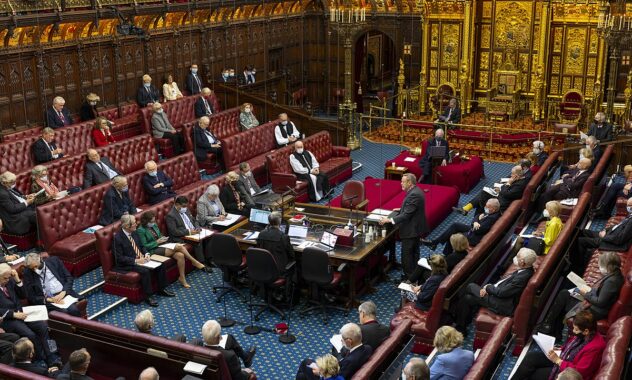Unions “won’t rest” until draconian anti-strike laws are repealed
Unions fire warning at government as minimum service level regulations pass – saying the fight against the legislation “doesn’t stop here”

The TUC has said unions “won’t rest” until the “draconian” anti-strike laws are repealed.
The union body warns the fight against the legislation “doesn’t stop here” – adding that unions will be discussing how they take on the new anti-strike laws at the “once in a generation” special Congress taking place this Saturday.
The warning comes as minimum service levels regulations in rail, ambulance services and border security passed on Wednesday.
The statutory code of practice regulations also passed, which the TUC says will wrap unions in “burdensome” red tape.
Ministers are separately consulting on rules affecting workers in hospital settings, schools, universities and fire services.
This is despite warnings from unions and employer groups that the plans are unworkable.
The laws will mean that when workers lawfully vote to strike, they could be forced to attend work – and sacked if they don’t comply.
TUC research found a massive 1 in 5 workers in Britain – or 5.5 million workers – are at risk of losing their right to strike as a result of the Strikes (Minimum Service Levels) Act.
Commenting on minimum service level regulations passing, TUC General Secretary Paul Nowak said:
“The fight against this draconian legislation doesn’t stop here – unions won’t rest until these laws are repealed. That’s why we are calling this weekend’s once in a generation special Congress.
Unions will be discussing how we take on these spiteful new laws and how we step up resistance and campaigning. Make no mistake. These new Conservative anti-strike laws are unworkable, undemocratic and likely in breach of international law.
They represent an unprecedented attack on the right to strike – and they’ll poison industrial relations and drag out disputes. Labour gets this. That’s why they have done the right thing and promised to repeal this nasty legislation at the earliest opportunity.
And it’s why employers, politicians and civil society groups are queuing up to oppose this legislation. The UK already has some of the most restrictive trade union laws in Europe. Now the Tories want to make it even harder for people to win fair pay and conditions.”
Widespread criticism
The legislation gives ministers sweeping powers to impose strike restrictions in any service within health, education, fire, transport, border security and nuclear decommissioning – and has faced widespread criticism.
NHS Providers recently warned that the legislation could worsen industrial relations, harm patient care and lead to more disruption.
The Joint Committee on Human Rights (JCHR) wrote to the government to express “serious concerns” about its anti-strike legislation breaching international law.
The EHRC also warned that the legislation could see all striking workers in affected sectors lose their unfair dismissal protection, as whole strikes could be deemed illegal.
The House of Lords Delegated Powers and Regulatory Reform Committee criticised the Act for giving blanket powers to UK ministers while providing virtually no detail.
The Act has also faced a barrage of criticism from Acas, civil liberties organisations, the House of Lords Delegated Powers and Regulatory Reform Committee, race and gender equalities groups, employment rights lawyers, and politicians around the world.







